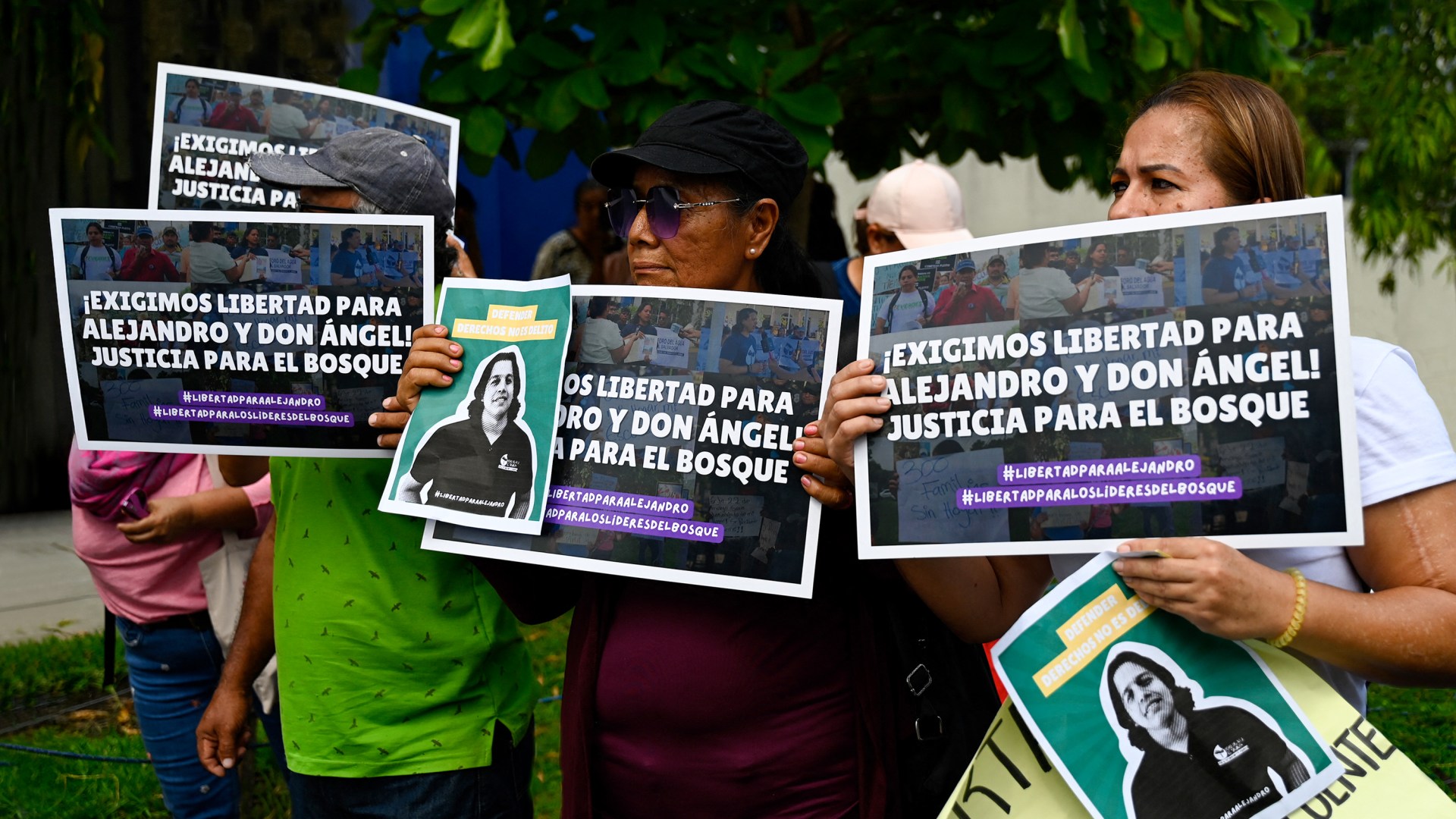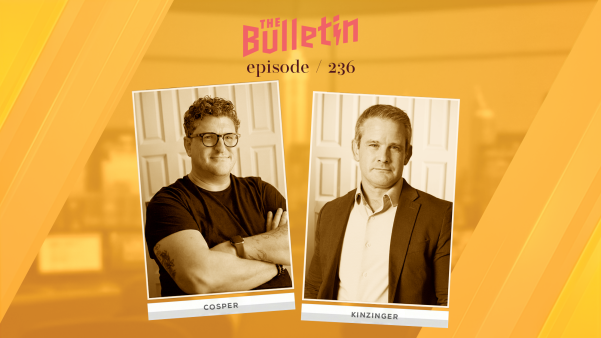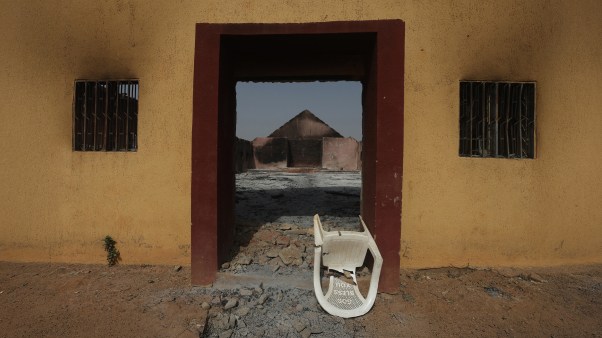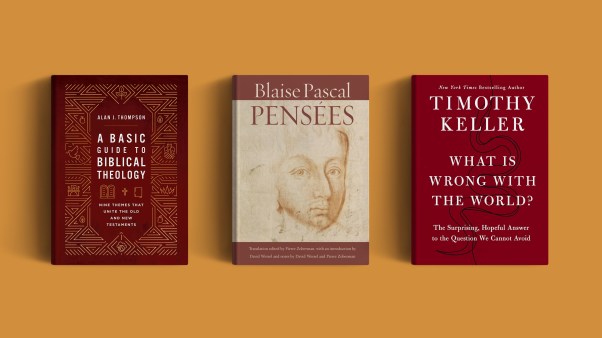Pastor José Ángel Pérez removed his blue cap and began to pray. He stood under a tree, surrounded by members of his congregation, Misión Cristiana Elim in El Triunfo, a rural community 15 miles southwest of San Salvador.
On the morning of May 13, Pérez took part in a demonstration at the capital, just half a mile from the presidential palace. He joined participants from an agricultural cooperative for small-scale coffee growers called El Bosque, which Pérez chairs.
The cooperative took a series of financial hits; members used land as collateral for defaulted loans, and 300 families in El Triunfo faced eviction from their homes.
“We know that no one can help us,” Pérez said in his prayer. “All our companions, our brothers, our neighbors are going to be evicted from their homes, and only you, God, can touch the hearts of those who have the power and authority to help us.”
“We want to ask that it be you who goes to that place where the president of this republic is, so that he may lend us a hand, so that we may be able to live in our own homes, which we have built over the years.”
Hours later, the pastor was arrested. Authorities also detained the cooperative’s lawyer, Alejandro Henríquez, along with Pérez.
Under the régimen de excepción—an emergency decree in force since 2022—police held Pérez and Henríquez in prison without a formal indictment for weeks. By May 30, both were charged with public disorder and resisting arrest. They’ve been in prison without visitors ever since.
Pérez’s congregation, a small church of around 60 people, has continued holding services for the past three months with the help of pastors from nearby San Salvador and Santa Tecla and fellow leaders from its denomination, Misión Cristiana Elim.
Elim hired legal counsel for Pérez, provided assistance to his family, and arranged for food and hygiene kits to be delivered to him at the detention center Centro Penal La Esperanza, according to Mario Vega, the denomination’s founder and leader.
Since the arrest, authorities have allowed Pérez and Henriquez to have just one conversation with their lawyers. Their families were not permitted to visit. “There is no way to know the quality of the treatment they receive,” said Vega.
Ruth López Alfaro, a Salvadoran lawyer specializing in anti-corruption, is in a similar situation.
López served as the chief legal officer for Cristosal, the country’s top human rights nonprofit. Police arrested her at her home on May 18, initially accusing her of embezzlement.
“It’s an impossible crime for her,” said Noah Bullock, executive director of Cristosal. “Under Salvadoran law, only public servants could be charged, and she’s not a public servant.”
Fifteen days after López’s arrest, the attorney general’s office changed the charge to illicit enrichment, another offense that applies only to public officials.
Founded in 2000 by Anglican bishops Richard Bower and Martin Barahona, Cristosal defended Salvadorans during the country’s civil war and amid the record-high rate of homicides in the gang war. Its recent reports called out the CECOT megaprison receiving Venezuelan prisoners deported from the US as illegal. Their analysis states that both the US and El Salvador “facilitated the transfer of illegally deported individuals into a prison system stripped of legal protections and judicial oversight” and therefore are “acting in coordination to commit grave human rights violations, showing disregard for human dignity.”
The use of the Salvadoran prison system to receive people deported from the US has been useful for Donald Trump’s strategy over immigration and made him a key ally in the region. In January, Trump praised Bukele’s leadership and called him an example for other nations in the Western Hemisphere. The Salvadoran leader—who once called himself the “world’s coolest dictator”—took the opportunity to approve a bill in Congress increasing the term of office from four to six years and abolishing the limit on reelections. Last week, the US Department of State backed the decision.
At Cristosal, López worked to enforce transparency and fair treatment of Salvadoran citizens, filing over a dozen petitions against the government, including petitions around unconstitutional mining and alleged negotiations between former legislator Osiris Luna Meza and gang leaders. (Now as the deputy minister of justice, Luna directs penitentiary centers and has legal custody of López.)
Cristosal suspended activities in El Salvador in July and moved its headquarters to Guatemala City due to threats. “Cristosal became a direct target for the government. We would have no way to defend ourselves in a neutral trial against this type of persecution, so we decided to move,” Bullock said.
“The arrest of our colleague Ruth López, lawyer and human rights defender, is not an isolated case but part of a broader strategy of exemplary punishment meant to intimidate,” he stated in a press release.
On the day Pérez and Henríquez were arrested, Salvadoran president Nayib Bukele accused his opposition of being behind the protests. “We were witnesses of how humble people were manipulated by self-styled groups of globalists and NGOs, whose only real objective was to attack the government,” he wrote in X.
In response, at the end of May, Bukele signed a new foreign agents law, which authorizes a 30 percent tax on donations to nonprofits, including religious groups, that receive support from outside the country. The Inter-American Commission on Human Rights said in a statement that the law “may limit the legitimate operation of civil society organizations and civic space in the country.”
Last month, Amnesty International declared López, Henríquez, and Pérez prisoners of conscience—the first since the end of El Salvador’s civil war in 1992.
For Vega, Pérez should be labeled a prisoner of faith. Last week Vega preached in a pastors’ meeting in San Salvador about Matthew 5:10–12:
Blessed are those who are persecuted because of righteousness, for theirs is the kingdom of heaven. Blessed are you when people insult you, persecute you and falsely say all kinds of evil against you because of me. Rejoice and be glad, because great is your reward in heaven, for in the same way they persecuted the prophets who were before you.
“I underlined ‘falsely,’” he said. “That’s what is happening with pastor José Ángel.”
“His vision of what it means to be a pastor is not someone who preaches once or twice a week,” Vega said. “A pastor must be side by side with his congregation in its sufferings and its longings. Being there for those who suffer is what led him to prison.”


















